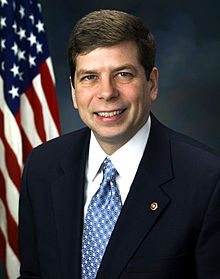The U.S. House passed a bill today to fund the Marine Debris Program – the federal entity that will coordinate the tsunami clean up as trash washes ashore. The bill is stalled in the Senate.
The Marine Debris Program has enjoyed bipartisan support since Senators Ted Stevens and Daniel Innouyue initially introduced it.
The House quickly passed a reauthorization Wednesday night. In fact, there was so much support it passed by a voice vote – meaning the entire House did not vote on it, just the handful in the chamber.
The House bill would spend nearly $5 million per year on the Marine Debris Program, while the Senate plan would double that. It would also add specific language about tsunami debris. That means the two bills will have to be reconciled with one another.

Senator Mark Begich says that should not be a problem.
“People understand, this sounds kind of odd, but this kind of normal debris that we’ve been dealing with for years,” Begich said. “And then these catastrophic situations that occur, people recognize those bring in a different kind of requirement of coordination of agencies in very fast way.”
But the future of the Senate bill is unclear. At least one senator placed a hold on this particular bill. Any senator can place a hold on any bill for any reason anonymously. The conservative Republican Steering Committee places holds on all sorts of bills. It’s chaired by South Carolina Senator Jim DeMint, who says he doesn’t remember if he put a hold on the marine debris bill.
“I’m not sure about that one,” DeMint said. “A lot of times we’ll hold bills they’re trying to pass by unanimous consent just so we can read them.”
Senator Lisa Murkowski is urging for a working group of federal agencies. She says last week she met with Secretary of the Interior Ken Salazar to discuss the problem.
“The Secretary was not aware that Alaska was seeing marine debris and wasn’t certain what was going on with the agencies,” Murkowski said.
Senator Murkowski says that working groups in Washington don’t tend to move quickly, but the agencies need to know what one another is doing. She adds that both the federal government and state will have to pitch in, both in manpower and financially.
Elaine Busse Floyd is with the Alaska Department of Environmental Conservation. She prepared the state application for a $50,000 grant for tsunami clean up from the National Oceanic and Atmospheric Administration.
“We didn’t designate a specific area, but it’ll either be in Southcentral or the Gulf of Alaska,” Floyd said. “We’ll pinpoint that down once we actually have the money in our hand.”
“Simultaneously, now I’m preparing a scope of work to put out so we can solicit proposals, so we can turn on a dime as soon as NOAA gives us approval.”
The executive branch of the federal government – the Department of Interior and others – could grant more money. But Senator Murkowski says a Congressional reauthorization for the marine debris program is the best first step to getting more money.
With time running out in the Congressional session, it’s looking tight. Senator Begich says he remains optimistic.
“I have seen things on a Friday when we’re closing out sessions, multiple bills that have UC’s on them – unanimous consent – or there moving forward because all of the holds have been lifted suddenly,” Begich said. “So you don’t know fully until the session is over; which won’t be until December.”
And by then, the cleanup effort will be that much harder … in constant dark and cold. And there’s no indication that a gridlocked Congress will come back after an election and decide to cooperate.
pgranitz (at) alaskapublic (dot) org | 202.488.1961 | About Peter




